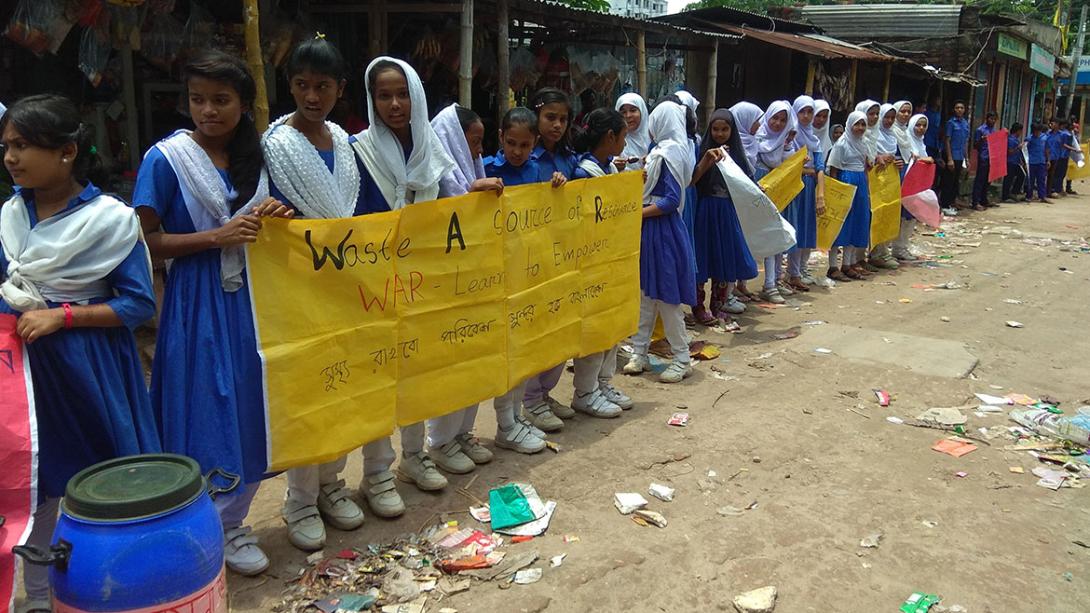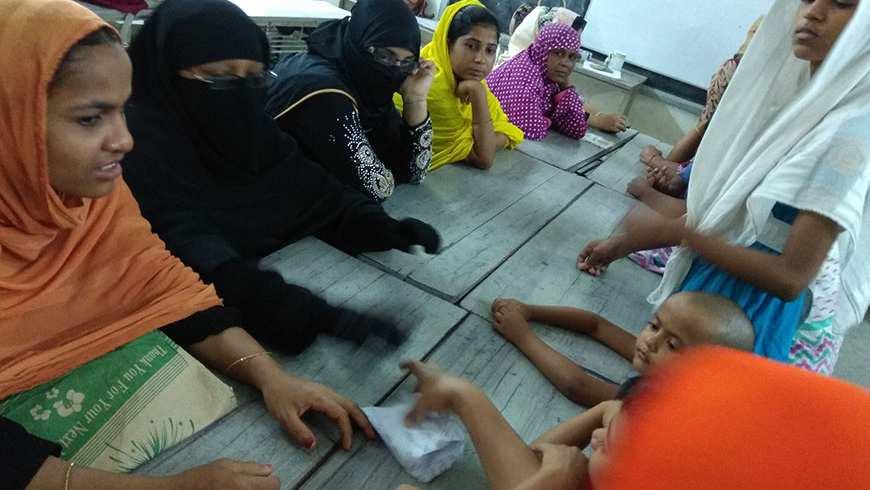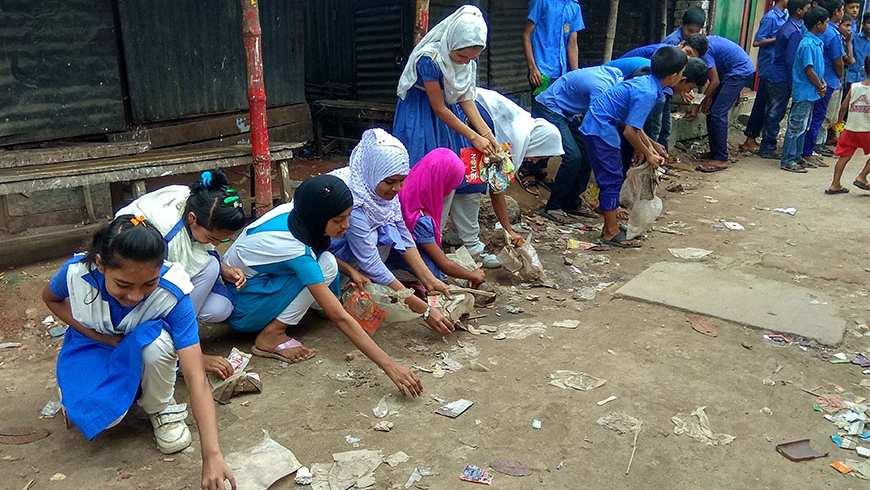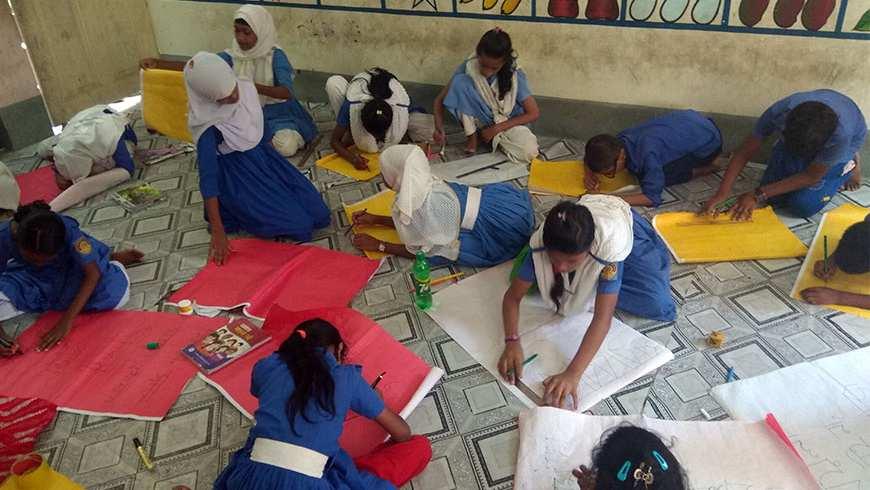In Bangladesh, Fellows and Students Work Together for a Cleaner, Healthier Community

During the rainy season last summer, Teach For Bangladesh Fellows Amina Azad and Sadia Jafrin became alarmed with the sudden drop in attendance at the Gawair Nabin Primary School in Dhaka, as kids fell ill and no one knew why. Determined to help their students, the two set out to find the source of the problem. They soon discovered that blocked drains were causing the run-off of the heavy rainfall to mix with waste along the roads the students traveled to and from school, and the contaminated pools of water they walked through each day were the source of the infections on their feet.
As in many under-resourced communities, Gawair, where the students live and go to school, lacks a proper waste management system. Residents of Gawair and similar areas are often unaware of the health risks of improper waste management, and yet they’re the most exposed to its threats. Amina and Sadia recognized that a safer, cleaner, and more sustainable environment would benefit their students and their families in multiple ways, and that working towards better waste management in their community would directly impact their fundamental rights to adequate living standards, health, and quality education.

After learning that improper waste management in their community was making the students ill, Amina and Sadia got to work on a solution. With the support of Greenman Bangladesh and Bangladesh Environmental Lawyers Association, the Fellows launched the project Waste: A source of Resource (WAR) to teach their students and their mothers about proper waste management, recycling, and sustainability. “We realized that there is a huge amount of poverty going on in the community...and if we could interconnect poverty reduction and waste management as one, maybe then the parents of the children would be interested,” Amina explained. “Then we started showing how you can use waste recycling materials as a source of income.”
A local enterprise called Crafty Pie helped them teach the women how to repurpose items such as plastic bottles into eco-coolers and discarded clothing into handicrafts they can sell, and how to start their own small scale recycling business.
As participants in Teach For All’s Global Girls’ Education Fellowship, Amina and Sadia also envisioned the project as a way to help empower female students in the school. In collaboration with organizations in their community, the students developed and delivered workshops to raise awareness of the benefits of proper waste management.
Compelled to do more than simply raise awareness, Amina and Sadia mobilized their students to write to local Members of Parliament explaining that the lack of a proper waste management system was affecting children’s health and education. The letters led to a meeting between the students and MP Sahara Khatun, who promised to make some changes. Soon, a permanent disposal system was installed in the school and proper roads are now under construction in Gawair.

Aware that their project was aligned with the United Nations 2030 Sustainable Development Goals (SDGs) (specifically SDG 11 on sustainable cities and communities and SDG 12 on responsible consumption and production), the two Fellows used their cell phone cameras to produce a video of the process and submitted it to the Global Youth Video Competition on Climate Change. Not only were Amina and Sadia the first Bangladeshis ever to enter the competition, their project was ranked among the top five of over 240 entries from around the world.

In partnership with their students and their families, Amina and Sadia are on their way to realizing their long-term vision for the development of a proper waste management system in Dhaka, and for all children to be educated about the health-related risks of waste. The project’s success in Gawair was only the beginning—the Fellows are already making plans to bring WAR to two new areas next year.
Watch Amina and Sadia present Waste: A source of Resource at Teach For Bangladesh’s Capstone Symposium and learn more about Girls’ Education initiatives across the Teach For All network.



